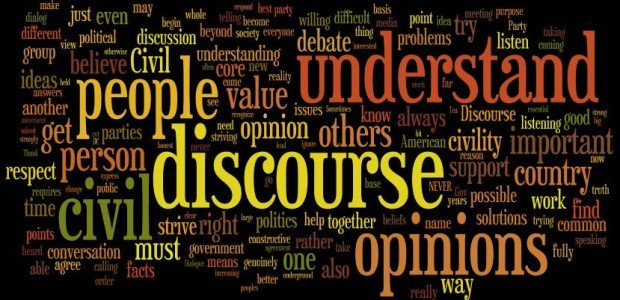Consequential Conversations Part 1: Civility
Do you avoid conflict? Do you find it hard to disagree with someone during a meaningful conversation? Are you stunned into silence when someone says something you strongly disagree with? Has your dread become greater with the increased division and the decreased tolerance of views different than our own?
When we remain silent, are we endorsing the situation or philosophy? Or can our silence be translated as apathy? There is a place for intentional silence during profound conversations. However, this essay is about using civility to have consequential exchanges.
What is civility? Most definitions are about being courteous and polite. I took this to mean: keeping a calm voice, taking turns, not talking over the other person, actively listening, using inoffensive language, and treating each other respectfully.
Civility isn’t only politeness, but it is a necessary first step. The courtesy and respect need to be genuine, not forced. When forced, it can come across as concealing your true feelings and can cause resentment, ruining any plan you may have to make a meaningful connection. Honesty is an essential ingredient.
While looking up definitions for civility, I found one on the website of the Institute of Civility. https://www.instituteforcivility.org
“Civility is claiming and caring for one’s identity, needs, and beliefs without degrading someone else’s in the process.”
– Cassandra Dahnke and Tomas Spath, Founders, Institute for Civility
More than being polite, we should share how the other person’s viewpoint affects who we are, what we need, and what we believe. We can begin by seeking common ground when dialoging about differences in beliefs or actions. An example might be acknowledging that both parties want to be safe and have their needs met, including food and shelter.
Additionally, it is essential to recognize that we all bring biases and personal preconceptions. At the Institute for Civility, they share the belief that the call to civility is nothing short of a call to our shared humanity, where respect, kindness, compassion, and dialogue grow out of a commitment to an ever-deepening understanding of self and others. When we question or try to understand the other person, we often learn more about ourselves.
Focusing only on the societal norms for politeness can lead to a significant misunderstanding of how to resolve our differences. Resolving problems requires candor. Sometimes, we may feel uncomfortable. However, when a problem is not voiced or shared with the other person, mutually beneficial solutions are not likely to be discovered. Identifying the problem and talking about how it affects your well-being is the first step to finding a solution.
In the early years of my marriage, my husband and I would often have yelling matches when we disagreed. We didn’t know how to have meaningful discussions. We later learned that to have an effective dialogue, it is crucial to attack the problem, not the other person.
We learned to
· wait to discuss the problem when both of us are rested and not distracted
· give each other permission to request a break to calm down when it gets heated – agreeing we had to bring it to a conclusion later
· not call each other names (stupid, lazy, uncaring, etc.)
· not use absolutes (you always, you never)
· keep focused on the shared reason or the common goal
After 50 years, we still have disagreements, but they are rare and seldom get out of control. I have learned to prepare ahead of time before bringing something to my husband’s attention. I practice how to word my concern, making sure to identify the problem, not just the actions, and to state it without attacking him.
These techniques can be used to have civil conversations when disagreeing with parents, siblings, friends, co-workers, and anyone else with whom you need to express your identity, needs, and beliefs.
I wish I could say that I have learned how to express my must-haves and what I value and believe. However, I can still be stunned into silence, though it happens less frequently. I want to say that I can focus on the problem and not the other person, but sometimes I attack them and not the problem, and have to apologize.
The better I become at civility, the more I feel called to have meaningful discussions with strangers, distant family members, or neighbors using my civility abilities and skills. We need to have these types of conversations rather than avoid them with silence, so that we can gain a better understanding of each other. We can then use this understanding/information to help us come to agreements about things we care about or explore ways to find common ground so we can come up with solutions to our problems that are acceptable to those involved.
I plan to prepare for these thought-provoking discussions. I will decide which topics I believe are worth discussing and how I will share my needs, desires, and identity without degrading the other person. Let’s come together, starting with our shared aspirations; tell each other when we disagree while respecting one another; work at remaining focused; and find mutually acceptable solutions for the problems we face and share. Will you join me?
Please check out tomorrow’s essay, Consequential Conversations: Part 2 – Silence, about the role silence can play during significant discussions.
Bit by bit, that’s all she wrote…
